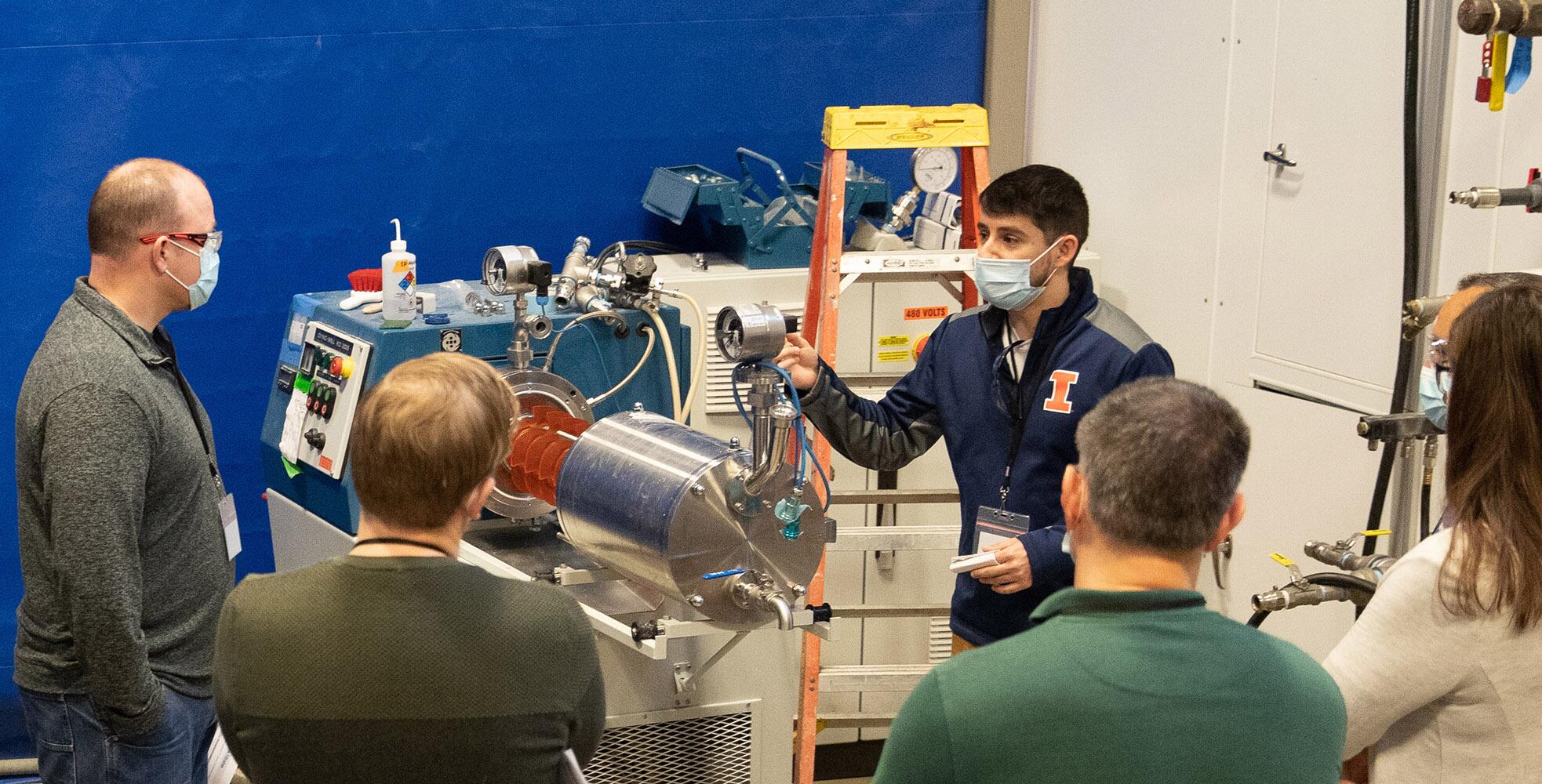IBRL offers hands-on fermentation short course to industry

URBANA, Ill. – Fermentation is a crucial manufacturing step for many industries, including food, feed, cosmetics, and fuel. The fermentation process converts agricultural feedstocks to valuable materials with the use of microorganisms such as yeast and bacteria. It provides ingredients for products ranging from meat and dairy substitutes to cosmetics made without animal proteins.
The fermentation field is growing rapidly, and companies need trained employees to manage the equipment and technical processes. That’s why the Integrated Bioprocessing Research Laboratory (IBRL) at the University of Illinois recently shared its expertise on fermentation in an intensive short course for industry practitioners.
The three-day course welcomed 25 participants from 10 companies.
Presenters included IBRL staff, faculty specialists from the College of Agricultural, Consumer and Environmental Sciences and The Grainger College of Engineering, and industry representatives. The course covered topics including types of fermentation, process modeling, and scale-up considerations.
“IBRL’s unique business model of connecting companies with academia and education makes us the perfect host for courses geared toward industry representatives. There is so much knowledge in IBRL and the University of Illinois faculty, and we are helping find new and innovative ways to transfer that knowledge and help more companies grow successfully,” says Vijay Singh, executive director of IBRL and distinguished professor of bioprocessing.
While fermentation courses are offered at other institutions, many of them are mostly theoretical. At IBRL, all participants got hands-on experience running pilot-scale fermentation and downstream purification equipment.
“The hands-on portion of the course was extremely useful. It is far easier to imagine the process when you can see the equipment firsthand,” says Kathryn Kruziki, principal engineer at General Probiotics.
“The course gave a nice range of information from strain development, bench scale fermentation, and transfer to pilot scale. It also discussed practical considerations as you go from pilot to industrial scale, including an extremely useful talk on economic modeling. I felt it covered a lot of ground effectively,” she adds.
General Probiotics, a Minnesota-based startup company, cooperates with IBRL as part of BioMADE, a research program funded by the U.S. Department of Defense. BioMADE encompasses multiple projects and partners conducting research on bio-industrial manufacturing technologies.
“We are developing engineered probiotic bacteria for poultry and are now at a stage in which we need to scale up production for FDA trials and verify the economic feasibility at an industrial scale. We thought the course could be an excellent way for us to progress our know-how in these areas,” Kruziki says. “The course strengthened our confidence in IBRL and our desire to work with them on future projects.”
Several of the companies whose employees attended the course have ongoing collaborations with IBRL, and some are donating equipment or materials.
“CSL Behring is donating a filter press to IBRL, and Primient, a global supplier to the fermentation industry, aids in sourcing critical fermentation substrates in this challenging and ever-evolving economic environment,” Singh says. “We greatly appreciate these industry contributions that help us more effectively support the expanding bioprocessing industry.”
IBRL plans to offer the fermentation course annually. Those interested in participating can contact Beth Conerty, IBRL associate director of business development, at bconerty@illinois.edu for more information.
IBRL is part of the Department of Agricultural and Biological Engineering in the College of Agricultural, Consumer and Environmental Sciences (ACES) and The Grainger College of Engineering at the University of Illinois.